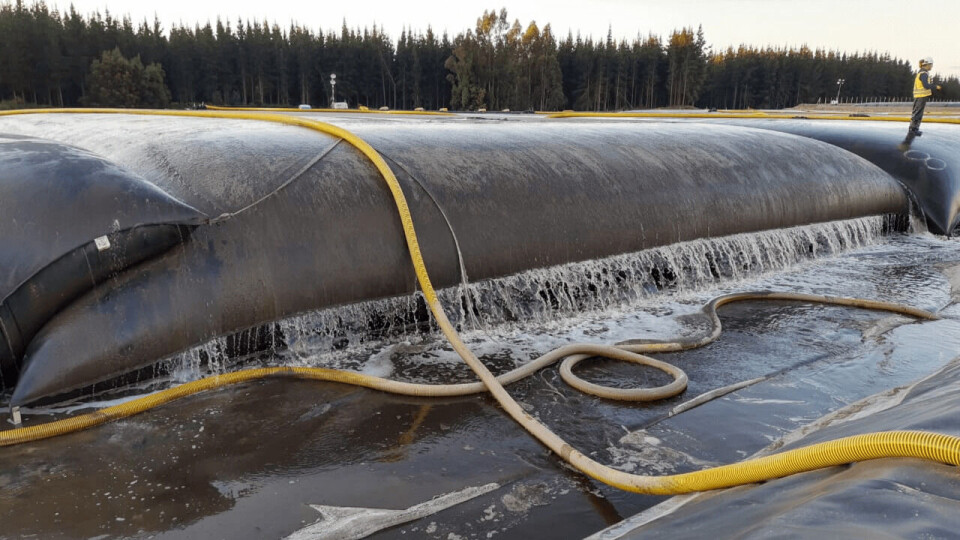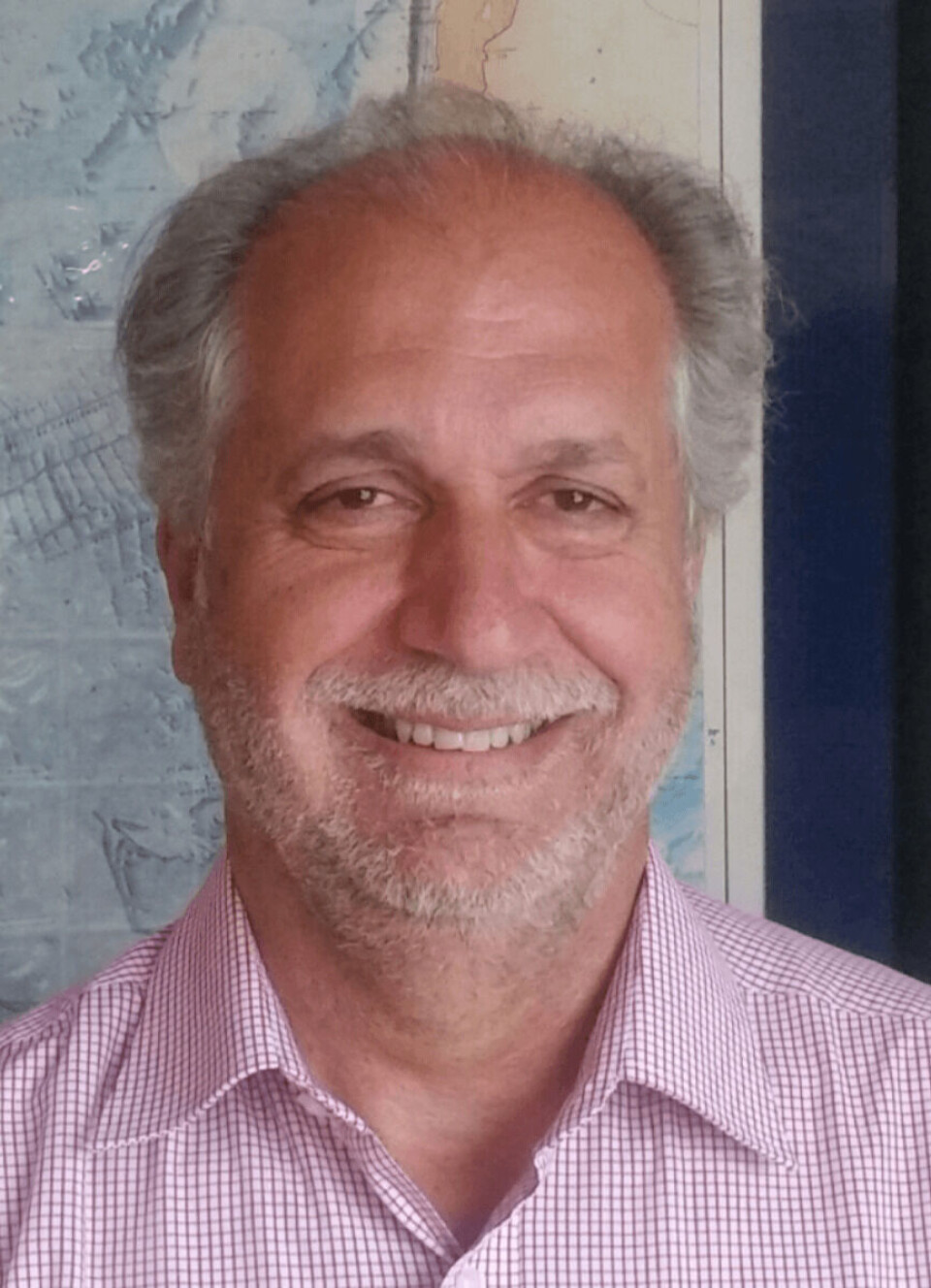
Chile: Fish farm sediment may be dredged and dried
Sediment from salmon farms in Chile could be dredged up on to barges and dried in huge bags made of a geotextile material as one solution to comply with imminent legislation.
The company Novatech has the technology and experience to dehydrate large amounts of solids brought to the surface and has received increased interest since the introduction of a parliamentary bill to ensure restoration of the seabed after a farming cycle is complete.
A number of companies are interested in extracting the sediment from the bottom of the salmon farms, and some asked Novatech to contribute their technology to dehydrate the huge amounts of solids mixed with water that will be brought to the surface.

200m³ bags on barges
Novatech’s executive director, Gerardo Martí, told Fish Farming Expert’s Chilean sister site, Salmonexpert.cl: “We are collaborating with these firms.
“We are distributors and manufacturers of ‘geotube’ technology by the American company TenCate, which created these large bags made of geotextile material, with capacities of hundreds or thousands of cubic metres, to very quickly dehydrate large volumes of water that are contaminated with solids, which in the case of salmon farming would be dredged.”
This technology, according to the manager, easily adapts to the requirements of different industries.
“Obviously, in the case of salmon sediments, it will not be possible to use large geotubes at sea, but yes, of limited size on barges. Probably, we would use those that have a maximum of 200 cubic metres of capacity.”
Retaining solids
When dredging is carried out, Martí pointed out, “we have the technology necessary for the geotubes to let the water pass and retain the solids on the surface for later final disposal of the dehydrated solid in authorised areas, or for its composting and eventual alternative use”.
This is not the only development of Novatech with the salmon farming sector. After two years of joint research it launched a spin-off with Fraunhofer Chile Research called Envirotek, which is dedicated to the collection and management of the sediments that are generated in the salmon cage (faeces and uneaten feed), both at sea and in lakes. Currently, the technology is in the introductory phase.
Novatech, which also operates mortality extraction through its subsidiary Novatech Aquaculture Services, is also part of an ocean farming consortium led by submersible cage developer EcoSea Farming SpA, and is working on extracting morts in exposed sites.
Dehydration of sediments
“We have developed the area of mortality extraction, working since the 90s with our Norwegian partners LiftUp, who invented this system,” said Martí.
Regarding the removal of faeces, Martí points out that “it is an issue that we have resolved today for lakes and where we are moving forward for operation at sea, which includes collection, extraction and dehydration of sediments, so as not to transfer large amounts of water at final disposal”.
Other proposals to restore the condition of the seabed under fish farms include using bacteria for sludge biodegradation, and injecting nanobubbles into sediment using remotely operated vehicles.























































